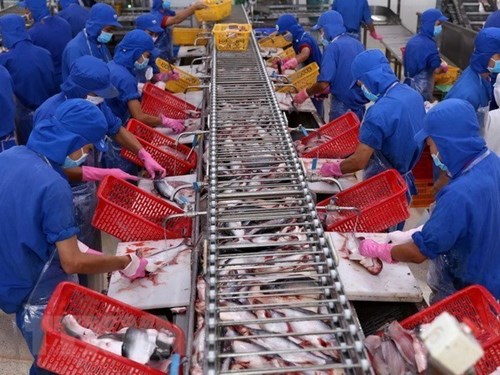The association advised enterprises to adhere to regulations on product origin, food safety and use of the seafood export certificates in processing and export aquatic products in general and tra and basa fish in particular.
The VASEAP is committed to working with relevant ministries and agencies to uncover and punish trade frauds, thus maintaining the prestige of Vietnam’s tra and basa products towards sustainable export to China and other markets.
    |
 |
|
Processing Tra fish for export |
Earlier, the association has reported the situation of tra export to China to the Ministry of Agriculture and Rural Development and the Ministry of Industry and Trade, and asked them to tighten quality control of tra fish products exported to China through border trade.
China has emerged as a big market for Vietnam’s seafood in general and tra fish in particular, with a growth rate averaging 21-31 percent a year over the past 5 years.
In the first five months of 2018, tra fish export to China earned the country USD 203 million, up 48.6 percent year on year, accounting for 25.5 percent of the total export revenue from this product.
However, a lack of quality control on the Chinese side for tra fish products imported through border trade may have negative effects on the prestige of Vietnam’s tra fish. Therefore, a proactive approach in this matter will help prevent such impacts on the tra fish industry, VASEP said.
On May 31, the Chinese Ministry of Finance announced an import tax reduction for 221 aquatic products from member states of the World Trade Organization (WTO). Tariffs on tra fish fillets and fresh and frozen tra fish were cut from 10 percent to 7 percent, and from 12 percent to 7 percent, respectively from July 1.
The move is expected to help lift tra fish exports through official channels instead of cross-border trade.
Source: VNA